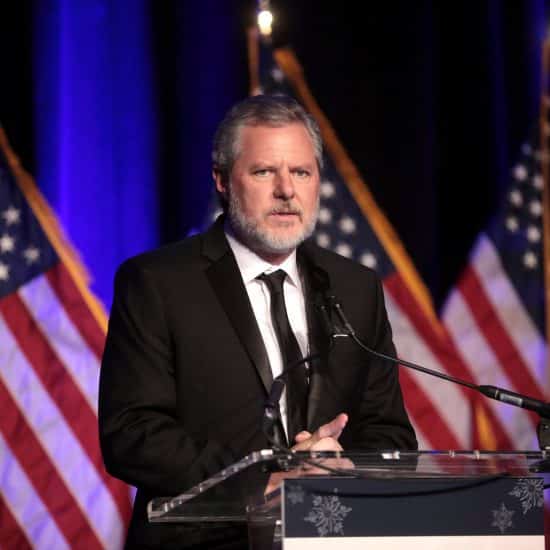Talking with church health consultants reveals similar stories. One common experience they often share features a church that asks for help after burning through several pastors in nearly as many years. During the consulting process, a deacon or other lay leader says something like “we just can’t find a good pastor” or “seminaries don’t train pastors like they used to.”
 William “Bill” Wilson, a former pastor and longtime church health consultant, noted that too often churches do not realize they — not the pastors — are the problem. He founded and leads the Center for Healthy Churches in Clemmons, N.C., which works with congregations and clergy across the country.
William “Bill” Wilson, a former pastor and longtime church health consultant, noted that too often churches do not realize they — not the pastors — are the problem. He founded and leads the Center for Healthy Churches in Clemmons, N.C., which works with congregations and clergy across the country.
Noting that 50 percent of seminary graduates quit the ministry in the first five years, Wilson said, “Many stepped into toxic congregations or into roles for which they’re not equipped or gifted.” Since “clergy’s first or early ministry experiences shape them,” those who remain in ministry could be negatively impacted if the “groundwater is poisonous” at an early church where they serve.
Wilson believes that for toxic churches, the “first step is like that for addicts.”
“It’s kind of like an alcoholic,” he said. “You have to admit you have a problem: ‘Hi, my name is First Baptist Church and I’m abusive.’ Many churches that are toxic never come to that realization,” he said. “Some churches need to have a kind of come-to-Jesus moment with their [lay] leadership.”
Robert “Bob” Perry, Churchnet congregational health team leader, points to emotional instability as a key factor in toxicity emerging in a congregation. Perry, author of several books on church health and leadership, also founded and leads Springfield, Mo.-based Organizational Health Associates to coach churches and nonprofits.
 “Toxic church leaders are emotionally immature and lack self-awareness,” Perry explained. “The emotional immaturity is expressed in hypersensitivity to perceived wrongs, selfishness in social situations and inability to control impulses such as temper and bullying verbal behavior. A 60-year-old church member can suddenly display the emotional instability of a 3-year-old. Unfortunately, the individual lacks the sense of self to realize how childish he or she is acting.
“Toxic church leaders are emotionally immature and lack self-awareness,” Perry explained. “The emotional immaturity is expressed in hypersensitivity to perceived wrongs, selfishness in social situations and inability to control impulses such as temper and bullying verbal behavior. A 60-year-old church member can suddenly display the emotional instability of a 3-year-old. Unfortunately, the individual lacks the sense of self to realize how childish he or she is acting.
“It should also be noted that a rare few of the toxic people in church are just plain mean,” he added.
Given the potential havoc toxic emotions can bring, Perry recommends churches consider the emotional maturity of individuals when filling leadership positions.
“Very often the toxic personalities are strong personalities and find fulfillment in intense church involvement,” Perry said. “But that involvement comes with a high need for control and adulation. When the expectations of the immature leader are not met by other church leaders, the frustration boils over into disruptive behavior. The best preventive is for responsible church leaders to carefully evaluate, not just the spiritual maturity and dedication of potential leaders, but their emotional maturity as well. Mature church leadership does not enable or quietly tolerate the outrageous conduct.”
He insisted church members should be given opportunities to grow, but “should not be entrusted with leadership roles until they demonstrate that they have moved beyond emotional infancy.”
Thom Rainer, president and CEO of LifeWay Christian Resources, wrote on his blog last fall about the “symptoms of toxic church leaders.” He also listed similar characteristics.
 Toxic leaders “see almost everyone else as inferior to themselves,” “show favoritism,” “have frequent anger outbursts,” “seek to dismiss or marginalize people before they attempt to develop them,” “are manipulative,” “communicate poorly” and “are self-absorbed,” he wrote.
Toxic leaders “see almost everyone else as inferior to themselves,” “show favoritism,” “have frequent anger outbursts,” “seek to dismiss or marginalize people before they attempt to develop them,” “are manipulative,” “communicate poorly” and “are self-absorbed,” he wrote.
Wilson fears that too often churches are “taking our cues from media” by following “demonic types of forces” such as distortions and extremes that dominate cable political shows.
“We’re being conformed to the culture in most churches and not being transformative,” he argued.
Church health consultants like Perry and Wilson remain hopeful that churches can overcome toxicity and become healthy.
Perry views servant leadership as Jesus modeled essential to helping churches become healthier.
“Church leaders should hold up models of servant leadership, unselfish service and quiet faithfulness,” he explained. “The greatest compliment of a church leader should not be how powerful or influential the person may be but how ‘Christ-like’ the person is. Healthy churches can only form around healthy leaders.”
Wilson also sees the potential of healthy lay leaders bringing new health and life to churches and their ministries.
“Toxic churches need a revival of spirit,” Wilson said. “Toxic churches drive away healthy people. Healthy churches either help toxic people or drive them away because it’s not crazy enough for them.”
Wilson wants to see more healthy churches.
“There is nothing more rewarding or fulfilling than a healthy congregation doing kingdom work, loving each other and loving their staff,” Wilson said. “Healthy congregations can transform a whole community, not just individuals.
“It’s like an oasis in the desert of our culture and we need more of it.”
Brian Kaylor is a freelance writer and author based in Jefferson City, Mo.






